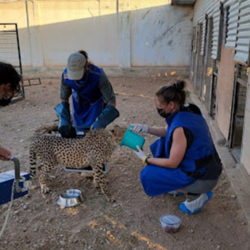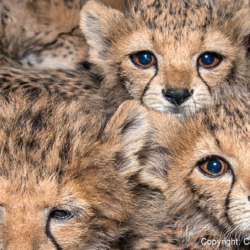Support the Cheetah Rescue and Conservation Centre
-
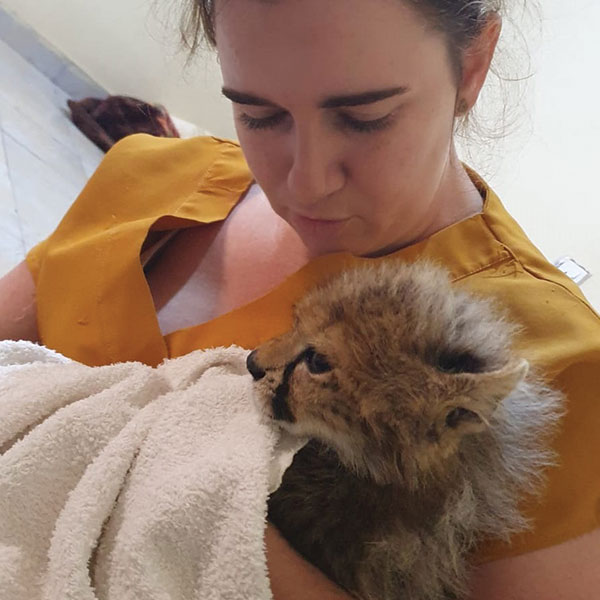
- by Lyndsay Scott March 8, 2023
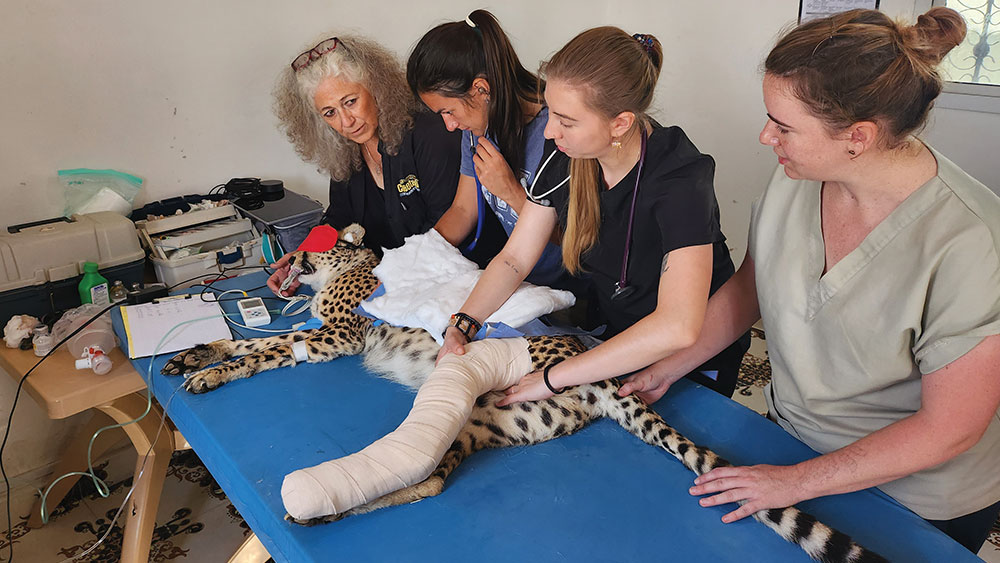
My name is Dr. Lyndsay Scott, and I work for the Cheetah Conservation Fund as the Head Veterinarian at the Cheetah Safe Houses in Somaliland. I have a unique distinction working for the organization in this country because I am originally from Namibia, the home of CCF’s original headquarters. I was born only a few years before CCF’s 1990 founding and raised in a little town in Northern Namibia called Tsumeb. As a citizen of the first African country to write environmental protection into our constitution.
I have always had a passion for animals and wildlife and like most other Namibian school children I was aware of CCF for most of my life. My sister volunteered at the International Research and Education Centre in Otjiwarongo. After I graduated from Onderstepoort Veterinary Facility in South Africa, I worked in private practice in Otjiwarongo. We would occasionally work on one of CCF’s animals, helping to provide care for cheetahs that needed sedation and clinical evaluations, dairy goats in need of c-sections, and Livestock Guarding Dogs in need of blood testing. It was such an exciting experience working with the cheetahs. Once a position became available at CCF, I applied immediately. It just so happens that the position I applied for took me to CCF’s other base of operations in Somaliland.
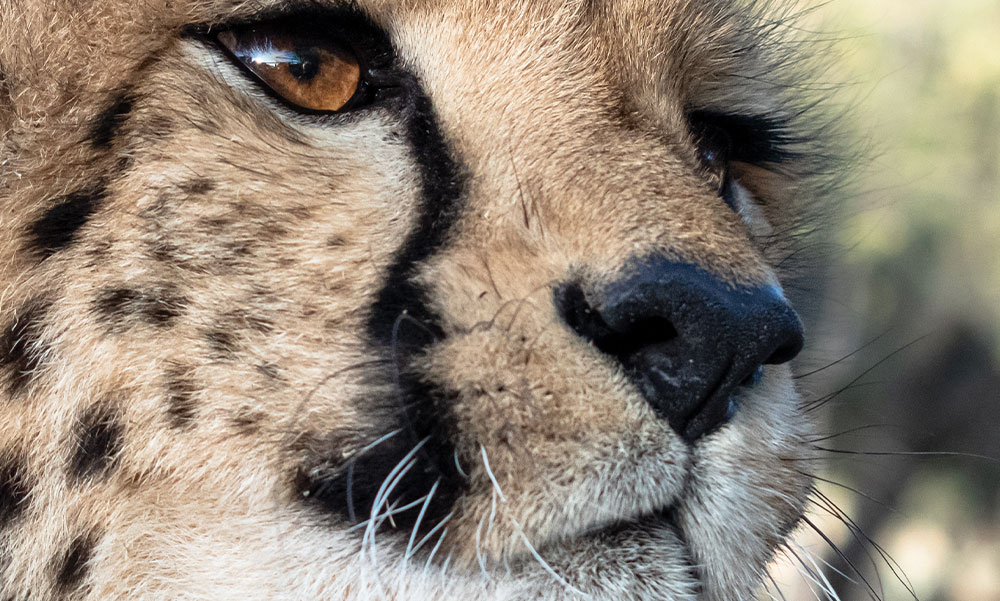
Though the cultures of the people in Namibia and Somaliland are very different, a lot of the challenges they face in their daily lives are the same. The people of both countries depend largely on livestock farming to feed themselves and their families. In both countries, human-wildlife conflict is driving the loss of livestock and decline in cheetahs. In Somaliland, the illegal wildlife trade (IWT) has been a way for poor pastoralists to opportunistically supplement their income. We’ve seen that most IWT cases are herders attempting to offload cheetah cubs from adult females that are killed either in retaliation for preying on valuable livestock or as a way to prevent losing any goats, sheep or camels.
Unlike CCF in Namibia, our base of operations in Somaliland is not yet capable of generating any income. All the management operations and running costs – the feeding of the cheetah, medicines we administer, supplementation we give – we are able to do it all only through the funding we receive. We have already moved many of the cheetahs to a more natural habitat, to bigger camps where they can run and be lazy under trees and bush; not enclosed in concrete walls.
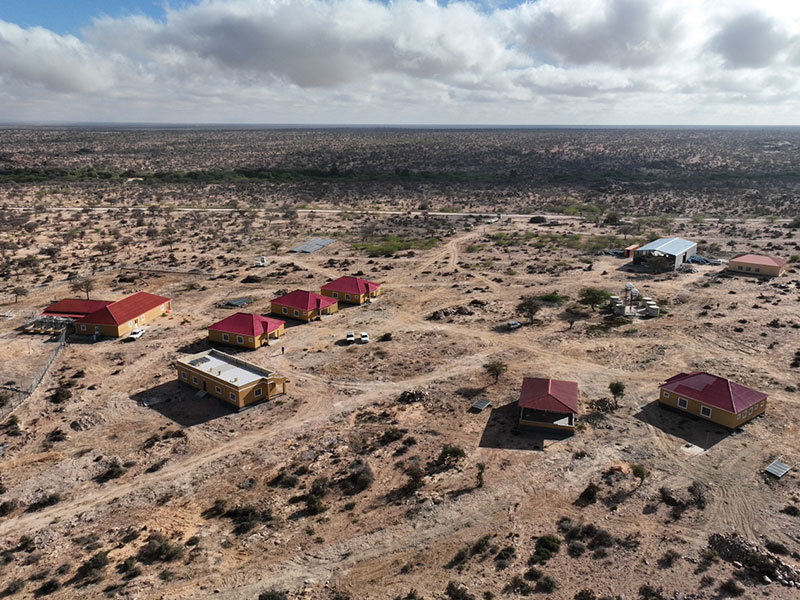
Please show your support today.
We are hoping to raise a total of $160,000 before May 1, 2023, to provide the funding for continued operations including cheetah care, food and enrichment. As we expand our efforts to mitigate the illegal wildlife/pet trade we are relying on you. Help us complete the Cheetah Rescue and Conservation Centre (CRCC), a new field centre in Somaliland’s first national park.
Achieving prosperity and security is a difficult and daily battle across the cheetah’s range. In Namibia, we have come a long way in elevating people while also protecting wildlife thanks in large part to your support and to the many years of work developing conservation strategies that address human-wildlife conflict. Conservation works best when the needs of the human community are taken into consideration. We are trying to promote some of these efforts here in Somaliland in a way that also acknowledges the unique needs of the people. Much like it did in Namibia, CCF will help to find “the Somaliland way” to the conservation of the cheetah and its ecosystem.
Thank you for all you give in supporting CCF’s mission. Your generosity is greatly appreciated.
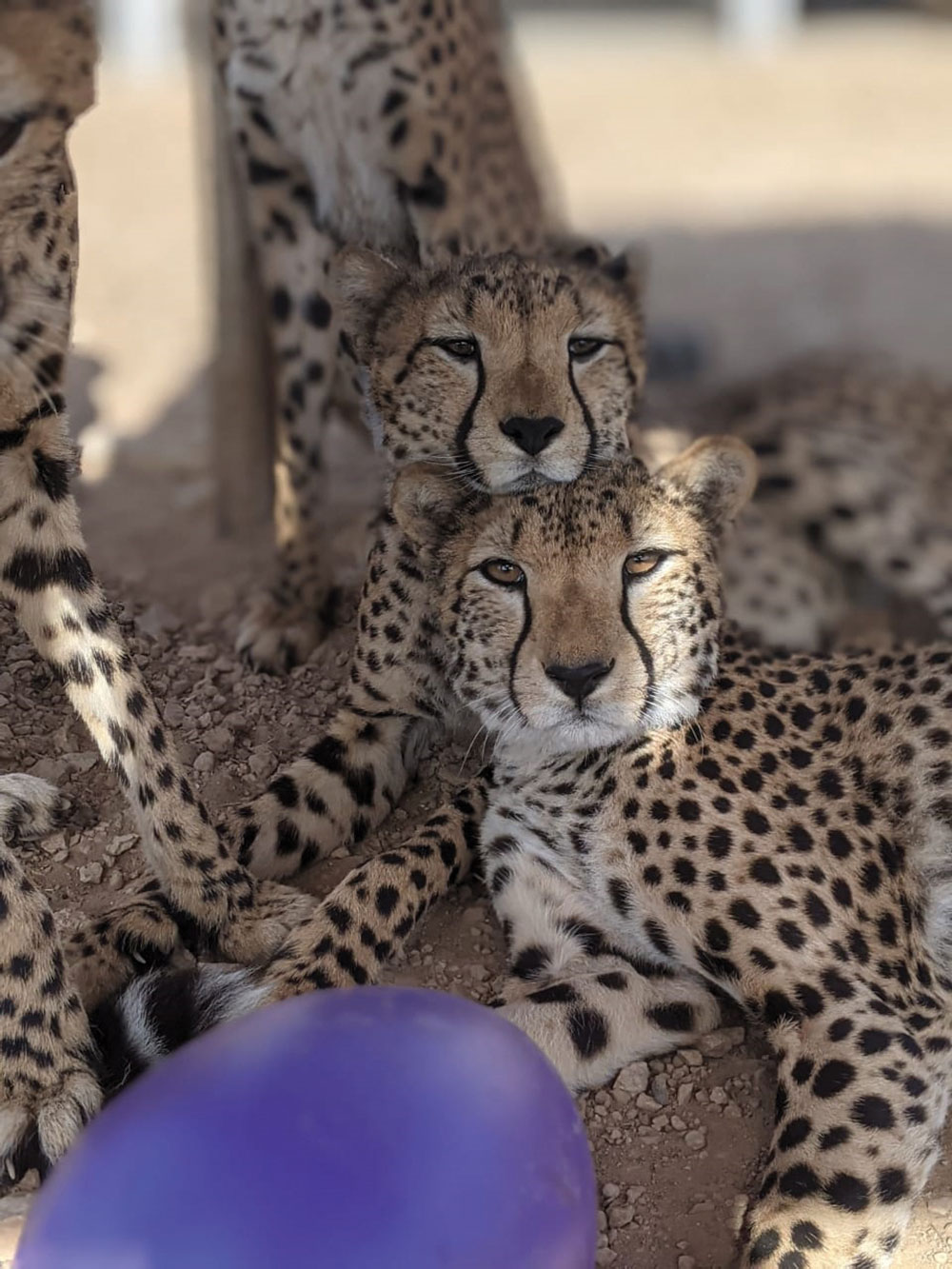
Related Reading
-
September 6, 2022
Veterinary Technician in Somaliland -
September 5, 2022
Cheetah Confiscations: A Frontline Perspective -
August 9, 2022
Canadians Provide Expertise at CCF Somaliland
